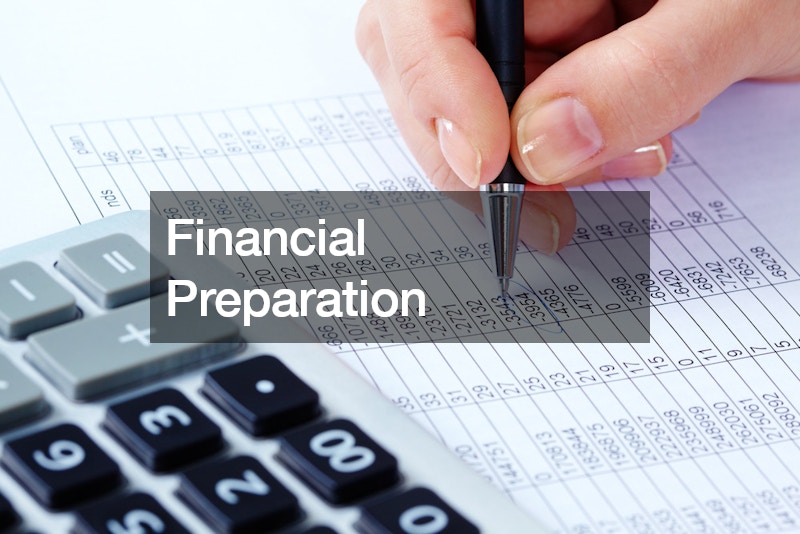

Going through a divorce is not just an emotional journey but also a financial one. Whether you are the spouse who manages the finances or the one who relies on the other for financial support, preparing yourself financially is crucial to ensure a smoother transition and secure your future.
Gather Your Financial Documents
The first step in preparing for divorce is to gather all your financial documents. This includes tax returns, bank statements, credit card statements, and any documents related to savings, checking accounts, or investments.
These documents will be essential when you file for divorce and throughout the proceedings. They provide a clear picture of your financial situation and help determine things like alimony, child support, and the division of assets.
You should aim to collect at least a couple of years’ worth of tax returns and several months’ worth of financial statements for your bank accounts and credit cards. If you have any prenuptial agreements, deeds for real estate, or statements for retirement accounts, include those as well. Having these documents ready can expedite the legal process and prevent delays caused by requests for information.
Understand Your Lifestyle and Expenses
Understanding your current lifestyle and tracking your expenses is another crucial aspect of financial preparation for divorce. This information can significantly impact decisions regarding alimony or spousal support. Make a list of all your monthly expenses, including mortgage or rent, utilities, insurance, groceries, and other regular expenditures. Also, consider discretionary spending such as dining out, entertainment, and travel.
Having a clear understanding of your financial habits and expenditures will help you present a realistic picture of your financial needs during negotiations or court proceedings. It may also prevent disputes over financial support by providing verifiable data on your standard of living during the marriage.
Have Access to Cash
Financial independence is key, especially if you have been financially dependent on your spouse. In many cases, access to joint accounts or credit cards may be restricted once divorce proceedings begin. It’s wise to have access to cash that you control independently. This ensures you can cover your immediate expenses and retain legal representation without relying on joint resources that may become inaccessible.
Consider saving up enough cash to cover several months of living expenses and legal fees. If saving isn’t feasible, explore other options such as borrowing from family or friends. Having this financial buffer gives you peace of mind and ensures you can navigate the divorce process without added financial stress.
Evaluate Shared Assets and Liabilities
Assessing shared assets and liabilities is crucial for equitable distribution during divorce. Make a comprehensive list of all marital assets, including real estate, vehicles, investments, and retirement accounts. Also, identify any joint debts such as mortgages, loans, and credit card balances.
Understanding the value and ownership of these assets and liabilities helps determine how they will be divided during the divorce proceedings. It may be beneficial to consult with a financial advisor or accountant to obtain accurate valuations and assess tax implications associated with asset division.
Review Insurance Coverage
Review your current insurance coverage and consider necessary adjustments in preparation for divorce. This includes health insurance, life insurance, auto insurance, and homeowner’s or renter’s insurance policies. Determine if you will need to secure individual coverage once divorced, especially if you are currently covered under a spouse’s plan.
Ensuring continuous insurance coverage protects you from unexpected expenses and provides peace of mind during the transition period. Make sure to update beneficiaries on insurance policies as needed to reflect your post-divorce wishes.
Plan for Post-Divorce Budgeting
Creating a post-divorce budget is essential to manage your finances effectively after separation. Estimate your future income and expenses based on your individual financial situation. Factor in potential changes such as spousal support payments, child support obligations, or adjustments in living arrangements.
A detailed budget helps you prioritize spending, allocate resources effectively, and adjust your lifestyle as needed to maintain financial stability. Consider consulting with a financial planner or advisor to develop a realistic budget that aligns with your long-term financial goals.
Seek Professional Guidance
Navigating the financial aspects of divorce can be complex, especially when emotions are involved. Seeking guidance from a qualified attorney specializing in family law is crucial. A knowledgeable attorney can provide legal advice, represent your interests in negotiations or court hearings, and ensure your rights are protected throughout the divorce process.
Additionally, consider consulting with a financial advisor or accountant who specializes in divorce financial planning. These professionals can offer strategic advice on asset division, tax implications, retirement planning, and long-term financial management post-divorce.
Conclusion
Divorce represents a significant life transition that requires careful financial planning and preparation. By gathering essential financial documents, understanding your current lifestyle and expenses, securing independent access to cash, evaluating shared assets and liabilities, reviewing insurance coverage, planning for post-divorce budgeting, and seeking professional guidance, you can navigate the financial complexities of divorce with confidence and clarity.
Each step outlined in this article plays a critical role in safeguarding your financial well-being during and after divorce proceedings. Taking proactive measures to organize your finances and prepare for potential challenges empowers you to make informed decisions and secure the best possible outcome for your future.
Remember, divorce is not just about separating from a partner emotionally; it’s about ensuring your financial stability and laying the groundwork for a secure future ahead. By addressing these financial considerations early on, you can mitigate stress and focus on transitioning to a new chapter of your life with confidence.
If you are contemplating divorce or currently navigating divorce proceedings, seek support from trusted professionals who can provide the guidance and expertise you need to achieve a favorable resolution. Your financial future is worth protecting, and proper preparation can make all the difference in securing a positive outcome.
.
